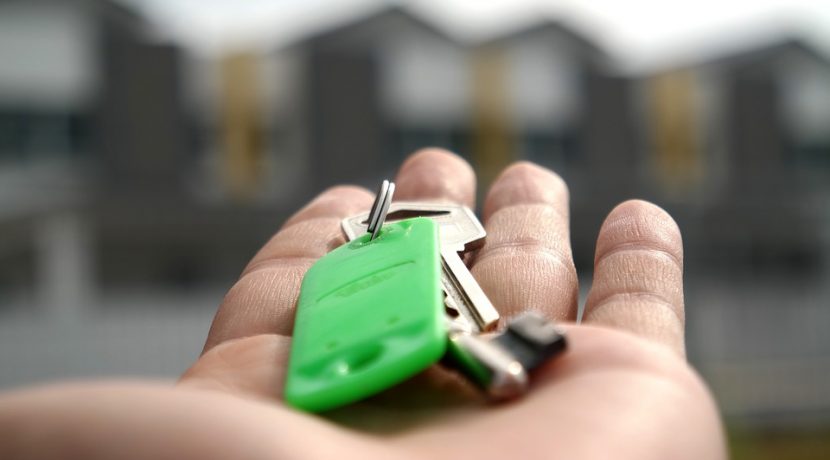The founder of Airbnb, Brian Chesky, likes to tell the story again and again. How he sat after his college graduation in his shared room in San Francisco, at the same time in the city, all the hotel rooms were fully booked and then he thought of an ingenious idea. What if he sublet his room? This is the founding myth of Airbnb, which has since been published in innumerable variations, and which continues to circulate the Silicon Valley disciples like a quasi-religious revival experience.
It's probably due to age-related amnesia, but I believe I remember living in a flat in Berlin for a week in the middle of the 80 in Berlin in the middle of the XNUMX years, which was taught to me by the local "Mitwohnzentrale". The drive from Bonn to Berlin was extremely cheap, as the gasoline money was largely paid by my two passengers, mediated by a so-called "carpool". In the latter case, I'm wrong again, was it Travis Kalanick, the founder of Uber, the one who, so to speak, invented the "ride-on".
Truth or myth, who cares today? Much more serious are the societal effects that platforms such as Airbnb, Wimdu, etc. are creating and which are now felt every day in cities like Barcelona, Amsterdam or Berlin. Tens of thousands of apartments and rooms are rented to tourists at a multiple of the normal, already high rental rates. The consequences of gentrification have been described enough, but there is another effect worth considering. When renting private apartments, do the authorities set the same standards as the rule for long-term rentals, and especially for hotel operators? If you look at the list of official requirements and regulations for a pension or a hotel, you rub your eyes in amazement. Dieter Schmitz, operator of the Bonner hotel "Esplanade" counts on: "regular fire protection controls, food controls of the health department, hygiene controls, controls of the electrical equipment, compulsory membership in the IHK, professional association, GEMA, trade tax, value added tax, income tax etc. etc. Another essential point is the marketing costs. If a hotel operator pays up to 15% of the room price on portals such as Booking.com, HRS or Expedia, private landlords at Airbnb usually pay 3%. Thousands of apprenticeships in the hospitality industry are also part of the truth.
None of the regulatory requirements that apply to commercial operators, feel the "host" of an Airbnb accommodation because they simply can not or will not enforce. Only the market, not authorities decide whether accommodation is acceptable or not. This is done by means of evaluations that guests submit about the accommodation of their hosts. When reading one comes over the feeling of living in a parallel world, but all guests and hosts write only eulogies to their respective counterpart. Everything is warm, cozy, nice and beautiful, far and wide no mold in the bathroom, foxing in bedding or hair in the drain. In this scary healing world, where nice people help altruistically and cherish sharing economy thoughts, the vile money does not seem to matter. At least not the part commonly called taxes. At Airbnb thousands of "superhosts" appear, they are really great people with lots of great reviews from their guests. And then there are sixty, eighty or a hundred (and not every guest rated) in two years together. It is easy to extrapolate which sales are generated with such guest numbers. Tax issues seem to be extremely unpopular among the sharing economy's supporters. Trade tax pays who has registered a trade, which a private landlord rarely does, since he is a private landlord. Many cities also levy a municipal tax, which is called "city tax" in the dreamy Bonn "accommodation tax" in cool Berlin. In Bonn, private travelers have to pay 5% of the overnight stay to the city, which will be charged by the hotel or pension operator. And the private landlord? He gets the following advice on Airbnb's help page: "The occupancy tax is usually paid by the guest, but the obligation to pass on the taxes to the government is usually up to the host. We expect all hosts to familiarize themselves with their local laws and regulations and to abide by them ". With this formulation, the platform operator has elegantly pulled out of the affair, the black Peter remains so at the private landlord.
The name and address of the landlords are not published by nature, so it is difficult for the tax authorities to understand who, how often and with what turnover leases housing. The Federal Ministry of Finance has therefore made an official group request to the Irish tax authorities in May last year, which in turn is required under EU law to query the landlord data in the Dublin European headquarters of Airbnb. With results will probably be expected in the near future, ie, many landlords will get unpleasant post from your tax office.
The student who leases his room for a few hundred euros during the semester break will usually have nothing to worry about, but the group of people who have developed a tax-free business model from the Airbnb rental will face significant penalties this is also justified. Finally, the only question is, why the zeal of the tax authorities and politicians responsible then flattened when it comes to the tax avoidance strategies of Airbnb, Apple, Facebook and others. But that's another story.

